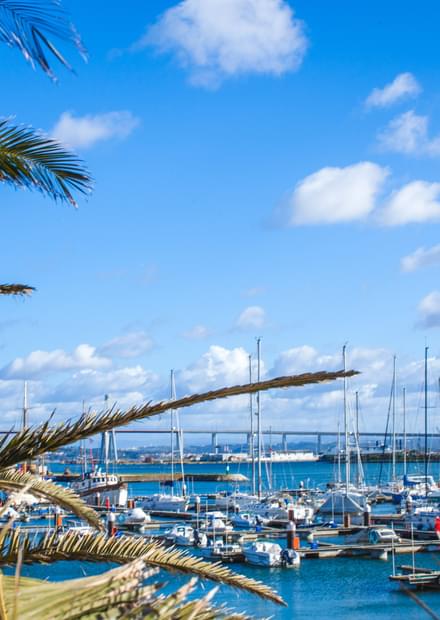MED-WET
MED-WET is a three-year project aimed at improving Mediterranean irrigation and water supply for small farmers by providing efficient, low-cost, and nature-based technologies. Three simple and low-cost irrigation solutions for crops and fruit trees are being tested in pilot sites in Portugal, Malta (Gozo), Morocco, and Egypt.
The MED-WET consortium is led by Hochschule Wismar University (Germany) and includes partners such as the Heliopolis University for Sustainable Development (Egypt), the National Institute of Agronomic Research of Morocco, Sultan Moulay Slimane University (Morocco), the University of Beira Interior and the Municipality of Fundão (Portugal), the Malta College of Arts, Science, and Technology, and the EcoGozo Directorate (Malta).
Over the past years, the Municipality of Fundão has been developing a consistent integrated urban development strategy, where innovation takes the central stage.
As the project reaches its final phase, following three years of research and one and a half years of pilot testing on cherry and peach trees, the project leaders— a partnership between the University of Beira Interior (UBI) and the Municipality of Fundão, in the district of Castelo Branco— are quite optimistic.
The technology tested in Mediterranean regions—Fundão, Malta, and Morocco— is designed for a climate affected by climate change and drought. It features a combination of SLECI drippers, which provide different volumes of water tailored to the specific needs of trees.
According to the project leader, João Leitão, what makes the tested technology innovative is its self-regulating effect. It operates under low hydraulic pressure and adjusts the amount of released water based on factors such as soil type and soil moisture content. Water is transferred to the soil through clay elements placed at a certain depth near the roots of the crop. Compared to the conventional drip irrigation system, trees need time to react and adapt to this method, he added.
Training sessions for farmers have already begun, aiming to transfer this knowledge for the implementation of more sustainable agricultural businesses.
MED-WET also incorporates technologies tested in other countries, such as wetland construction in Egypt and a solar house prototype with a desalination system in Malta.
The MED-WET project is funded by the PRIMA Program, supported by the European Union.
Innovation-oriented solutions
SLECI
is a self-regulating subsurface irrigation technique that uses the actual suction force of the surrounding soil to regulate the release of water from the system. The water is transported through clay pipes that have a higher suction tension than the applied hydraulic pressure, so that the surface of the clay pipes remains moist.
Solar desalination system for using saline and low-content water
Evaporation greenhouse compartments based on the principle of solar desalination. Salt water is evaporated (raw water) and recondensed as fresh water. Passive surface cooling mechanisms are tested that condense the evaporated water, e.g. low quality water (e.g. saline groundwater or seawater). The systems must be cheap and easy to install. Evaporation losses are reduced by 90 per cent and therefore operating costs, and yields increase by 10-30 per cent.
Productive constructed wetlands for wastewater reuse
transforms vineyard wastewater into recovered irrigation water, which flows to other production units with edible crops. This allows farmers to directly utilise effluent that is safe for reuse and rich in nutrients for agriculture. Crop selection and positioning are targeted to accommodate water and nutrient needs and tolerance.
Med-Wet firmly believes that the project can contribute significantly to ease increased demand on fresh water and thus decrease water scarcity in the Mediterranean region. Climate change and water stress have long been of concern to the United Nations and other entities.
A-AAGORA Project
The Horizon Europe project Atlantic-Arctic Agora - A-AAGORA - is structured to support the European Commission Mission on “Restore our Ocean and Waters by 2030” within the “Atlantic- Arctic lighthouse”, led by the University of Aveiro.
A-AAGORA is responding to the need:
• To protect and restore marine and freshwater ecosystems and biodiversity.
• To protect valuable ecosystems located in coastal communities particularly vulnerable to climate change impacts.
• To mitigate the effects of climate change, while promoting societal well-being.
A-AAGORA will demonstrate how innovation, Ecosystem-based Management and Nature-based Solutions can contribute to sustainable transformation in three coastal areas:
• Troms, Arctic Archipelago, Norway
• County Cork, Ireland
• Center of Portugal
The three Demos will serve as pilots of innovative actions, providing important data from the Atlantic-Arctic Lighthouse that can advance global ocean science and direct research in other coastal and marine regions.
This project is funded by the European Union.
Goals
To create an impact by:
• Enhance the protection and restoration of ecosystems and biodiversity towards climate neutrality.
• Demonstrate nature-based solutions to combat climate change while preserving natural ecosystems.
• Empower individuals and communities to make informed choices and take action towards a more sustainable future.
• Foster collaboration between stakeholders and advance the global conversation around ocean conservation.
Reducing water footprint
Everything we use, wear, buy, sell and eat consumes water to produce. The water footprint measures the amount of water used to produce each of the goods and services we use. Agriculture producers in the Mediterranean are often cited as being one of the largest water footprint sources in the region.
Choose more often to:
- drink tap water
- eat whole unprocessed food
- reduce your carbon footprint by buying local products














